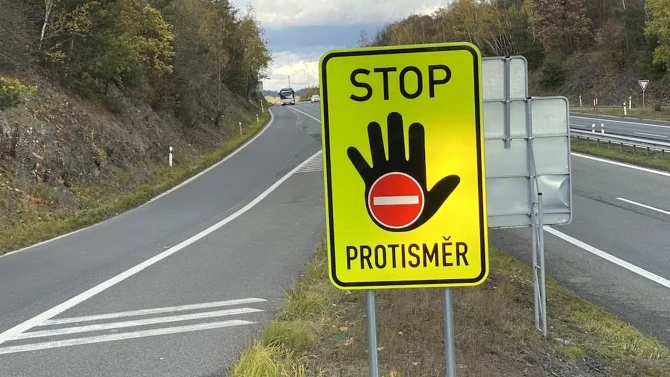...low
* Worries about financial sector and economy dominate
* Commodity shares track metal and crude prices lower
By Atul Prakash
European shares sank to five-year lows on Wednesday as investor jitters about financial sector ructions and their impact on the global economy grew despite a bailout package for UK banks.
At 0940 GMT, the FTSEurofirst 300 <.FTEU3> index of top European shares was down 5.5 percent at 948.42 points after hitting a low of 923.86 -- the lowest level since late 2003. The index has lost 12.9 percent this week and 37 percent this year.
Trading on France's CAC 40 <.FCHI> was suspended for about 15 minutes in early trade as a number of stocks, representing about 35 percent of the index's total market capitalisation, were halted limit down, Euronext said.
Banks were the hardest hit, with Dexia <DEXI.BR> falling 14.6 percent, Societe Generale <SOGN.PA> slipping 7.7 percent and Credit Agricole <CAGR.PA> shedding 6.2 percent.
"There is somehow a disbelief in the ability of the system to repair itself. It may just be that the system has been so incapacitated that what's called for is a different modus operandi which is yet to be found," said Mike Lenhoff, chief strategist at Brewin Dolphin.
"Certainly it's a very distressing situation we have got into. It's wrong to say that the world is coming to an end -- that's a wrong bet to make -- but what you want to do is to be fairly defensive in the treatment of your portfolios."
The worst financial crisis since the Great Depression forced Britain to announce a multi-billion pound rescue package for banks that included plans to inject up to 50 billion pounds of government money into the country's biggest operators. [ID:nL8586784]
The decision followed days of crippling pressure on banks, some of which have lost nearly half their value on the stock market amid investor fears they could collapse if they are not handed a massive liquidity lifeline.
British bank HBOS <HBOS.L> surged 43.8 percent and Royal Bank of Scotland <RBS.L> jumped 11 percent, but Barclays <BARC.L> fell 8.5 percent and Lloyds <LLOY.L> fell 6.7 percent.
"The provision of extra liquidity will hope to free up lending in the short to medium term. The hope is that this will kick-start the banking sector once again, and breathe a much needed air of confidence back into the system," said Chris Hossain, senior sales manager at ODL Securities Ltd.
"The risk is that if this doesn't work, where do we go next? A co-ordinated rate cut would logically seem to be the next step, but after that, there isn't much more we can do."
GLOBAL CRISIS
The gloomy outlook continued to hurt global markets, with Japan's Nikkei average <.N225> tumbling 9.4 percent on Wednesday and U.S. stocks sliding more than 5 percent overnight.
Hong Kong followed Australia's lead in slicing a full point off interest rates as pressure grew for a coordinated, global monetary policy response to the crisis.
Federal Reserve Chairman Ben Bernanke on Tuesday cautioned that downside risks to economic growth had worsened and signalled a readiness to lower interest rates.
Spanish Prime Minister Jose Luis Rodriguez Zapatero late on Tuesday said Spain will raise its guarantee for deposits in its banks to 100,000 euros and set up a 30 billion euro fund to buy assets from banks and keep credit flowing to the economy. [ID:nL7363787]
Energy stocks also fell on Wednesday, tracking a sharp drop in crude prices that retreated below $88 a barrel as concerns the global financial crisis will crimp oil demand overshadowed signs that OPEC producers may consider a supply cut.
BP <BP.L>, Royal Dutch Shell <RDSa.L>, gas producer BG Group <BG.L> and Tullow Oil <TLW.L> shed between 5.4 and 8.4 percent.
Mining stocks were also sharply lower. BHP Billiton <BLT.L>, Anglo American <AAL.L>, Vedanta Resources <VED.L>, Lonmin <LMI.L>, Kazakhmys <KAZ.L>, Xstrata <XTA.L>, Antofagasta <ANTO.L> and Rio Tinto <RIO.L> fell between 4.9 and 11 percent. (Additional reporting by Brian Gorman; Editing by Quentin Bryar)
[LONDON/Reuters/Finance.cz]
Europe shares at 5-yr low on credit, economy fears
08.10.2008 | , Reuters
Zpravodajství ČTK
 Zdroj: Finance.cz
Zdroj: Finance.cz
* FTSEurofirst down 5.5 pct after hitting 5-year...
Články ze sekce: Zpravodajství ČTK
AUTA



 Povinnosti účastníků provozu účastníky provozu mnohdy zaskočí. Dnešní kvíz prověří, jestli své povinnosti znáte
Povinnosti účastníků provozu účastníky provozu mnohdy zaskočí. Dnešní kvíz prověří, jestli své povinnosti znáte
 „Přišel pěšky, odjel vlastním vozem“: slogan autobazarů měl charakterizovat prodeje ojetin v Československu
„Přišel pěšky, odjel vlastním vozem“: slogan autobazarů měl charakterizovat prodeje ojetin v Československu
 Je Kodiaq favorit? V ČR se hledá nejlepší auto pro rok 2025. Ve hře je i brutální elektromobil nebo klasické SUV
Je Kodiaq favorit? V ČR se hledá nejlepší auto pro rok 2025. Ve hře je i brutální elektromobil nebo klasické SUV
 Rok po faceliftu dostal elektrický bestseller z Mladé Boleslavi další facelift. Enyaq vypadá jak Elroq
Rok po faceliftu dostal elektrický bestseller z Mladé Boleslavi další facelift. Enyaq vypadá jak Elroq
 Kdo nezvládne kvíz základních dopravních značek za plný počet, ten by raději neměl řídit. Tak se ukažte
Kdo nezvládne kvíz základních dopravních značek za plný počet, ten by raději neměl řídit. Tak se ukažte
